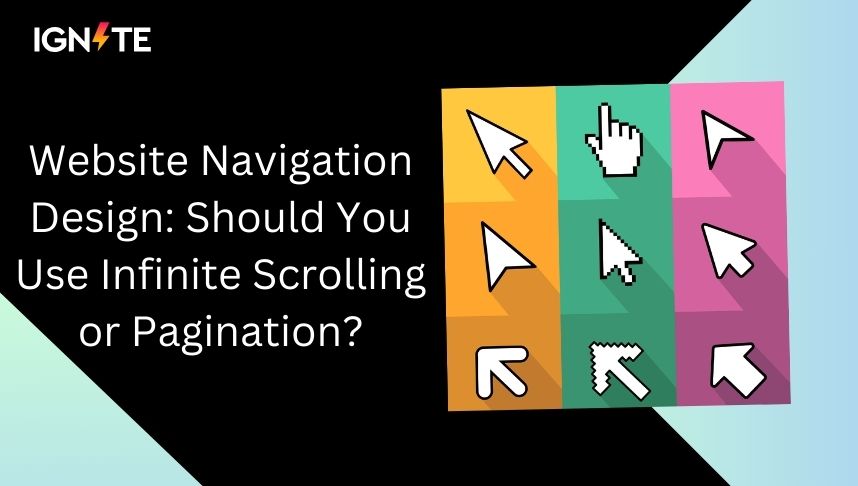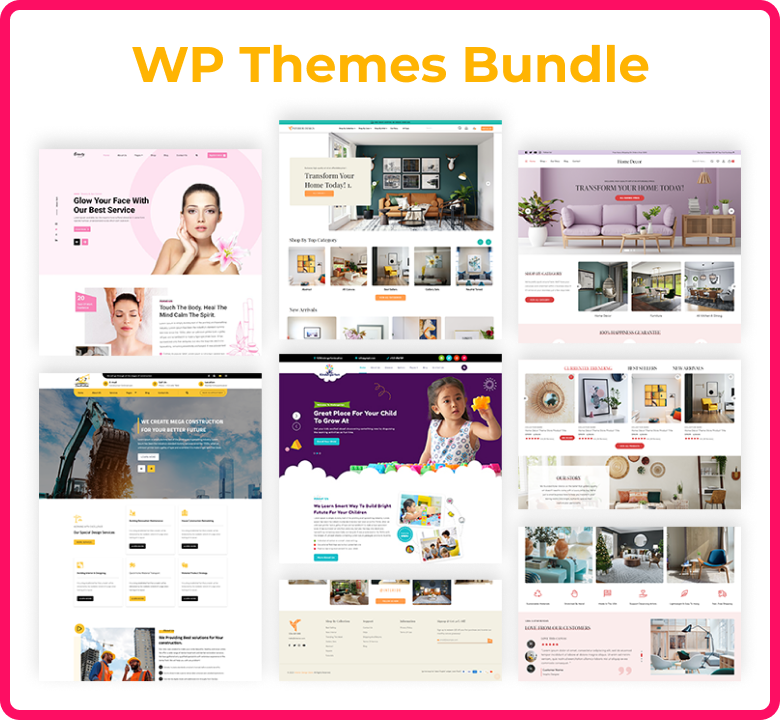In the ever-evolving world of web design, one of the fundamental decisions a website designer or developer must make is presenting content to users in an easily accessible, engaging way. Two popular methods for navigating content-heavy sites are infinite scrolling and pagination. Both have their advantages and potential drawbacks, and understanding the benefits and trade-offs of each can greatly influence how users interact with your site. For innovative tools and resources to enhance your web design projects, visit Theme Ignite. In this blog post, we will dive deep into the specifics of infinite scrolling and pagination, comparing their respective advantages and offering guidance on which method is best suited for your website.
What is Infinite Scrolling?

Infinite scrolling is a technique used in web design where content loads continuously as the user scrolls down the page, eliminating the need for clicking through pages. This method is often used in social media platforms like Instagram or Twitter, where users can scroll through endless posts or tweets without interruption. The key feature of infinite scrolling is its ability to create a seamless, uninterrupted browsing experience. When a user reaches the bottom of the page, new content automatically loads, keeping them engaged and preventing them from needing to click on “next” buttons or navigating between pages.
One of the most significant advantages of infinite scrolling is its ability to maintain user engagement. Since there is no apparent "end" to the content, users may feel more encouraged to explore more, increasing their time spent on the site. It is handy for websites that rely on real-time, frequently updated content like news sites, social media feeds, or product listings. In these cases, infinite scrolling keeps the content dynamic and continually fresh without requiring the user to load more information manually.
Advantages of Infinite Scrolling
-
Seamless Browsing Experience: Infinite scrolling provides a fluid browsing experience, keeping users engaged without the need to interact with the page to load more content manually.
-
Increased User Engagement: Continuously loading content encourages users to explore more, potentially boosting the time spent on your site, which could translate into better user retention and more page views.
-
Ideal for Content-Rich Websites: Content-heavy Websites, such as social media platforms, news websites, and eCommerce stores, can benefit from infinite scrolling since it allows users to access new content as they scroll down the page seamlessly.
-
Mobile-Friendly: Infinite scrolling is particularly advantageous on mobile devices, where page loading times and interaction with pagination buttons can be cumbersome. As content is automatically loaded, users can continue scrolling with minimal interruption.
What is Pagination?

On the other hand, pagination is a more traditional method of web navigation where content is divided into separate pages, and users can click through these pages by using buttons like “next,” “previous,” or specific page numbers. Pagination is widely used on blogs, search engines, and eCommerce sites. Instead of content automatically loading as the user scrolls, pagination breaks the content into manageable chunks, usually with a set number of items per page.
The most significant advantage of pagination is its ability to segment content and make it more organized. For websites that have a large amount of content, such as blogs or online stores, pagination helps users navigate easily by allowing them to access specific sections or categories of content. It is also a useful way to control the speed at which content is loaded, which can help improve the website’s overall performance.
Advantages of Pagination
-
Better Content Segmentation: Pagination divides content into smaller, more digestible chunks, making it easier for users to find exactly what they want. This structure is particularly helpful for long-form content like blog posts, product catalogues, or search results.
-
Faster Load Times: Pagination typically results in faster load times for individual pages. Since fewer items are loaded simultaneously, the browser can render the page more quickly, improving the overall user experience.
-
Improved Navigation: Pagination is often easier for users to understand as they are familiar with navigating through pages. It allows users to jump to specific sections directly, which can be useful when dealing with large amounts of content.
-
SEO Benefits: Pagination allows search engines to index each page individually, potentially leading to better ranking for individual pieces of content. It’s also beneficial for websites with large volumes of products or posts that need to be categorized for SEO purposes.
Infinite Scrolling vs. Pagination: Comparing the Two
Both infinite scrolling and pagination have their pros and cons. The right method depends largely on the type of content you’re presenting and the user behavior you want to encourage.

-
User Experience: From a user experience standpoint, infinite scrolling can feel more dynamic and engaging, allowing users to continuously discover new content without clicking through multiple pages. However, this can also become overwhelming for users who prefer structure and control over their viewing content. On the other hand, pagination offers a sense of organization, allowing users to jump to specific sections or skip ahead if they are looking for something in particular.
-
Performance Considerations: Infinite scrolling can cause performance issues, particularly on websites with a lot of content or images. As content continuously loads, it can eventually slow down the page, leading to lagging or longer load times. Pagination, while typically offering faster load times, can be slower if pages contain large amounts of data or media.
-
Content Types: Websites that display constantly updated, real-time content—such as social media feeds, product listings, or news—are better suited for infinite scrolling. This keeps users immersed in the experience without interruptions. Conversely, websites with static content—like blogs, educational platforms, or traditional eCommerce stores—tend to benefit more from pagination, as it provides a clear structure and makes navigation easier for users.
Choosing the Right Method for Your Website
When deciding between infinite scrolling and pagination, consider the following factors:
-
Type of Content: If your website displays large volumes of constantly updated content (e.g., social media posts and news articles), infinite scrolling might be the best choice. Pagination is typically the better option for more static content (e.g., blogs, product catalogues).
-
User Goals: Consider what your users are trying to accomplish on your site. If they’re casually browsing and don’t have a specific goal, infinite scrolling might engage them for more extended periods. However, if your users are looking for something specific, such as a particular blog post or product, pagination may help them navigate more effectively.
-
SEO and Content Discovery: Pagination provides better indexing opportunities for search engines, particularly for websites with large volumes of content. If SEO is a top priority for your website, pagination might help with discoverability and indexing.
-
Performance Considerations: Consider how infinite scrolling can affect the performance of your website. If your site contains many media files or data-heavy content, infinite scrolling might cause slower load times. In such cases, pagination can help maintain website speed and responsiveness.
-
Mobile Optimization: Both methods can work well on mobile devices, but infinite scrolling provides a smoother experience since users don’t need to tap through multiple pages. However, remember that endless scrolling can become tedious for users if there is no clear way to reach the content they seek.
For tools and themes tailored to enhance your website’s functionality and navigation, check out the WP Theme Bundle from Theme Ignite. Additionally, explore their Premium Product Collection for resources to elevate your design and user experience. By selecting the right method and using the best tools, you can create a website that meets your users’ needs and goals.
Conclusion
Both infinite scrolling and pagination offer distinct advantages and serve different purposes depending on the type of content and the goals of your website. Infinite scrolling engages users with continuous, seamless browsing, making it ideal for content-heavy sites like social networks, news platforms, and product listings. On the other hand, pagination offers better content segmentation, faster load times, and improved navigation for websites with large or static content.
Ultimately, the right choice depends on understanding your audience’s needs and ensuring that your web navigation enhances the user experience. Whether you choose infinite scrolling or pagination, always prioritize usability and consider the content your users consume. If you’re looking for expert advice or support in implementing the best navigation approach for your site, contact the team at Theme Ignite. By focusing on these factors, you can create a more engaging, efficient, and enjoyable experience for your visitors.









